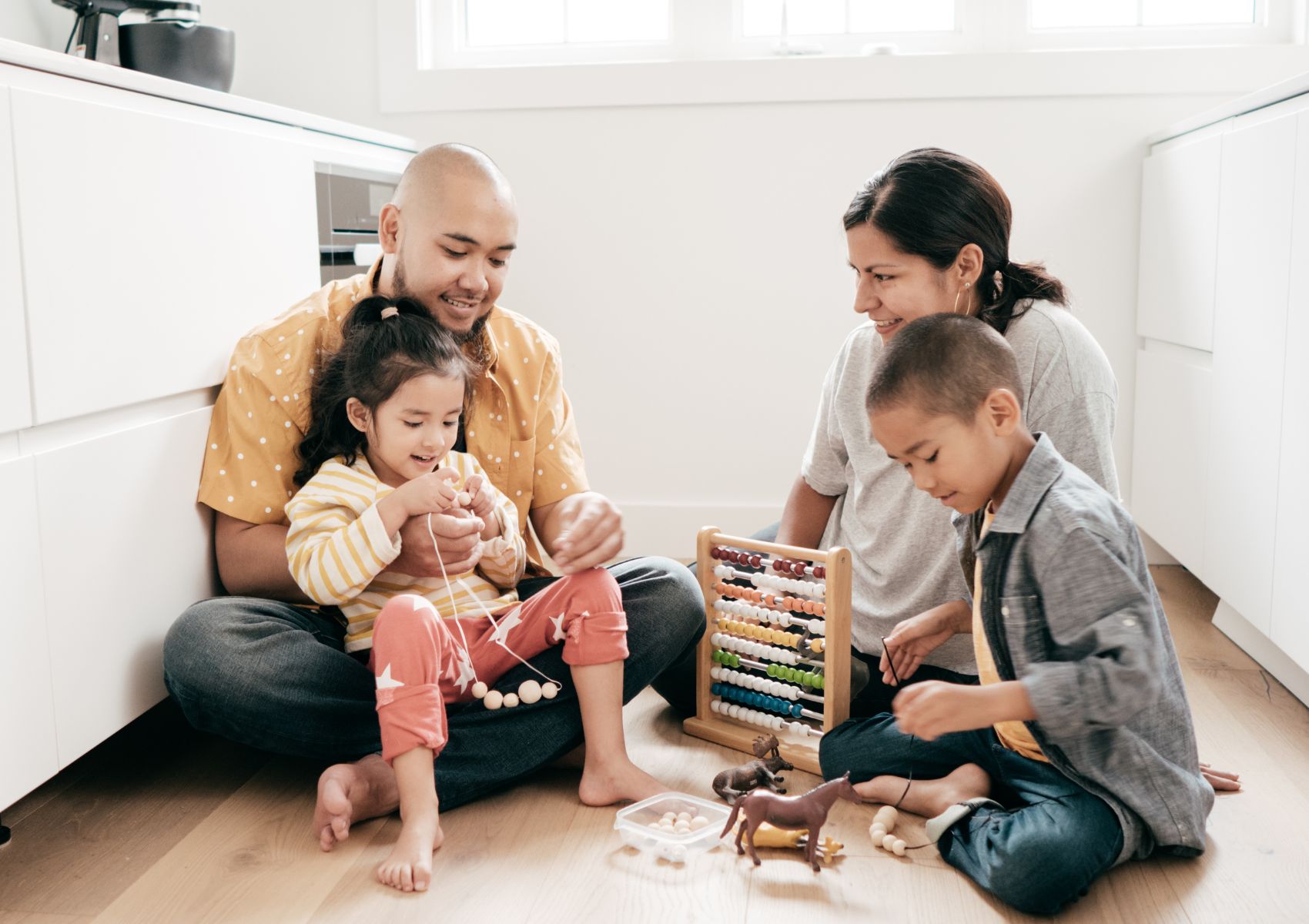We’ve Just Separated; Now What?” Series, Part I: What is Co-Parenting?

January 4th
2024

Are you stepping into 2024 as a newly minted co-parent? You’re not alone: statistically, the first Monday after New Year’s Day is the most popular day for divorce filings. Unfortunately, no one hands you a manual on navigating this major life transition, and diving into the unknown can feel overwhelming. That’s what KohParenting is here for! We’re starting the year with a series for co-parenting newbies, veterans, or anyone looking to enhance their knowledge of foundational topics. This week, we’ll define co-parenting: what it is, what it isn’t, and how to do it right.
THE GIST:
- Two main styles of separated or divorced parents include co-parenting and parallel parenting.
- Co-parenting means that both parenting partners try to care for their child jointly; they collaborate and work together to make decisions regarding parenting.
- Parallel parenting means that parenting partners operate from two separate realms; they each make independent decisions with limited collaboration or communication!
- Research into both styles shows that co-parenting can lead to happier, healthier children and parenting partners and mitigate the potential negative impacts of parental separation or divorce
Defining Co-Parenting:
The internet, social media, and self-help industry teem with information for parents. Many terms get bandied about to describe the different relationship dynamics between those who have separated or divorced. After all, every family is unique, and there’s no “one size fits all” for parenting agreements! But to make sense of it all, let’s talk about two main classifications: co-parenting and parallel parenting.
Co-parenting is defined as any situation in which parental figures jointly care for their child. Technically, this definition includes romantically linked, cohabitating, or married couples. However, this word is typically applied to divorced or separated partners: two separate entities coming together to share child-rearing responsibilities.
It would be easy to assume that two parenting partners automatically become “co-parents” since they both have a connection (biological or otherwise) to the child. But co-parenting encompasses so much more and requires conscious decision-making and ongoing effort from the separated or divorced parents. This synergy can be difficult to achieve; sometimes parents resist or avoid it altogether.
Parallel parenting describes an alternate scenario in which each partner cares for their child separately, with minimal contact or collaboration. This may describe scenarios in which both parents share custody but conduct their custody time entirely independently, with little communication or interaction with each other.
These two types of parenting make for distinct experiences for the child. In co-parenting families, children ideally see their family as integrated, with both parents working together and establishing some sort of consistency or rhythm in their respective households. Their co-parents may not always agree or do things in the same way, but they project the message that they’re on the same team. In parallel parenting families, children may feel like they live in two separate worlds, worlds that don’t come together.
Misconceptions about Parallel and Co-Parenting:
By definition, parallel and co-parenting may seem to represent two mutually exclusive extremes. But in the real world, things aren’t so black and white, and a more realistic way to view them would be as two ends of a continuum. Parenting partners could fall anywhere in between the two or oscillate back and forth depending on the situation. Read on as we clarify other common misconceptions:

Ample research does suggest that co-parenting can be an effective way to ease the transition after a separation or divorce and can lead to greater satisfaction for parents and children. Kids from co-parenting families often have fewer mental health or behavioral issues and may be able to maintain closer relationships with each parent. Parents’ ability to work together with minimal conflict seem to promote optimal development in children. Overall: a win-win.
However, that doesn’t mean that co-parenting is the only viable option. Some co-parents may not be able to agree on how they want to care for their child or work together peacefully. Parallel parenting may be the best option for those families with a history of conflict, particularly if that conflict has led to violence or unsafe situations. In this case, both parties focus on what they do during their parenting time with their child, maintaining a sense of autonomy even though they know they cannot control what happens during the other parent’s custody time.
The 5 Pillars of Co-Parenting:
Co-parenting is a choice and requires intentional habits from both parenting partners. There’s no “correct” way to do it; finding what works best for your family can take time and practice. However, through years of working with co-parents across the globe, we have pieced out some common traits that set some apart from the rest. Here’s Koh-Parenting’s list of the 5 foundational qualities of healthy co-parenting:
They put the child first.
They change their perspective on their relationship.
They establish healthy patterns of communication.
They take care of themselves.
They commit and keep showing up.
Co-Parenting as a Learning Process
At KohParenting, our mission is to demystify co-parenting and help parenting partners attain the co-parenting relationship of their dreams. We hope this post clarifies what co-parenting is and isn’t, whether you’re just getting started on your journey or have been at it for a while. Co-parenting is a process, and it’s never too late to learn! We’d love to know: what does co-parenting mean to you? What have been the biggest surprises about co-parenting? Tell us in the comments below!
Join our community where you can stay informed on what's happening in the world of co-parenting and learn more about what we do.

Stay tuned for upcoming segments of our series, “We’ve Just Separated: Now What?” in which we’ll break down foundational topics in co-parenting. In Part II, we’ll dive deeper into the new dynamics of the co-parenting relationship: how it’s different from the romantic relationship, and how parenting partners can separate the present from the past.

Loading
Thank you for joining our
Koh-Parenting Community!
We are registering your email address. Please don't leave this page. You will be redirected in less than 10 seconds.
To continue reading this blog, join our community!
When you join our community you will keep you in the loop on the latest co-parenting topics, our weekly Newsletter, company updates and happenings. We will be here every step of the way as you embark on a developing a healthier co-parenting relationship.
Latest Posts

We’ve Just Separated; Now What?” Series, Part II: Defining the New Relationship
What happens to the dynamic between two people when a relationship ends? After a breakup, many people completely remove [...]

Giving Back to YOU: Why Celebrating Your Co-Parenting Wins is the Ultimate Gift to Yourself
When was the last time you celebrated yourself? Many people spend the last few weeks of the year running around, buying [...]

KohParenting’s Top 3 Holiday Spending Pitfalls, Solved!
The ads are everywhere: ‘tis the season for spending! Retailers big and small all jump on the bandwagon at holiday tim[...]

7 Ways Single Parents Can Manage Holiday Stress
Any parent knows that the holidays can be full of both magic and mayhem. For single-parent families, the period from Tha[...]

Raising Kind Kids: World Kindness Week!
Kindness isn’t just a world; it’s a movement. Did you know that November 13th -19th is World Kindness Week? People f[...]

Celebrate With Us: A Year of the Best in Koh-Parenting Content
Co-parenting is one of the most challenging roles anyone could possibly undertake, and it’s important to celebrate all[...]
